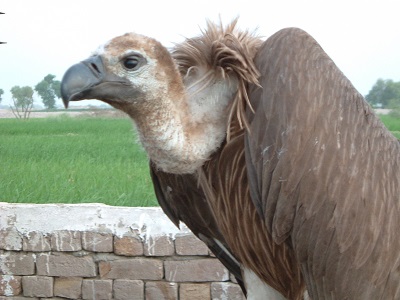New Delhi, (Asian independent) The Delhi High Court was informed on Tuesday that a ban on two veterinary drugs used for the treatment of livestock have been agreed by the experts because of their adverse impact on vultures.
A division bench of Justice Satish Chandra Sharma and Justice Saurabh Banerjee was hearing a Public Interest Litigation filed by advocate Gaurav Kumar Bansal over the issue of the declining vulture population in India.
The high court had, in April, granted more time to the Central government to file its reply to the plea.
The reply affidavit by the Health Ministry and the Central Drugs Standards Control Organisation (CDSCO) read: “The matter was referred to the Department of Animal Husbandry and Dairying (DAHD) and the Ministry of Agriculture and Farmer’s Welfare for their expert opinion.”
It further said that the matter was examined by the DAHD in consultation with the subject experts and it was recommended to impose a ban on the veterinary drugs Ketoprofen and Aceclofenac for treatment of livestock to conserve vultures.
The statement said that the matter was deliberated and further it was agreed to prohibit the manufacture, sale, and distribution of the drugs and their formulations for animal use.
It also said that as per the authorities, the issue should be provocatively examined and a list of all drugs that affect animal health and the environment should be prepared for further action.
The court, in December 2022, had directed the CDSCO to take action to safeguard and conserve vultures, by outlawing the medications that are to blame for India’s declining vulture population.
It had taken serious note of the fact that the usage of NSAIDS (non-steroidal anti-inflammatory drugs) in veterinary medicine, such as diclofenac, aceclofenac, ketoprofen, nimesulide, etc., has caused a 97 per cent drop in the number of vultures.
Bansal had earlier informed the court that even the Environment, Forest, and Climate Change Minister had publicly indicated that the vulture population had dropped sharply over the course of more than three decades, from 40 million to just 19,000.
“It is clear from the statement of the Minister that in the last 30 years around 4 crores vultures have died which means that around 13 lakh vultures lost their lives every year, which further implies that India is witnessing around 1 lakh mortality of vultures every month because of toxic drugs,” Bansal had submitted.
He had claimed that the Indian government was ignoring its own statements that were made in numerous committees at the national and international levels and that it was not outlawing the toxic drugs that harm vultures, which are considered an endangered species by the International Union for Conservation of Nature and are listed in Schedule I of the Wildlife Protection Act, 1972.








